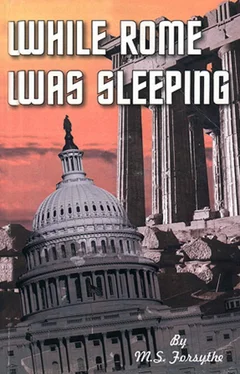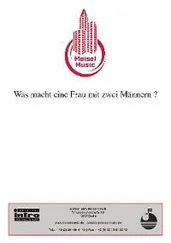“That’s right,” Harry responded, his curiosity growing.
“Terrific!” Andrew exclaimed somewhat derogatorily.
“Well in a way it is, Andy,” Browne said in defense, “For example, GCI has the wherewithal to go into areas that have literally been devastated by major disasters and completely rebuild from the ground up-including the infrastructures. They operate without getting involved in all the petty international politics. There are not many companies that have that capability.”
“That’s all well and good, Harry, but I don’t believe in Santa Claus, so humor my skepticism and tell me what’s in it for them. How do they get reimbursed for their generous investments?” Andrew asked.
“Well, Andy they get a piece of the pie, so to speak. Countries that are cash poor generally have underground wealth-oil, gas, minerals and so on, even real estate, these countries hand over ownership to GCI of some of their natural resources. It’s a pretty good deal for everyone; at least it appears to be.”
“Harry, do they do that in war zones as well? You know, I mean places that have been at war, but are no longer.”
“I don’t know about post war zones, Andy; I suppose they could-they’re big enough and they have the capacity to do it.” Harry mused. “Why all this interest in GCI?”
Ignoring Browne’s question, Andrew pressed on, “Who runs GCI, who’s on their Board of Directors?”
“I don’t have the names at hand, but I can find out. It might take me a little while; I’ll get back to you on this. I’ll ask you again, why do you want to know?” Harry persisted.
“I can’t tell you right now, but if I’m right you may have a great tidbit for the front page. You may have your very own international business scoop.”
Harry just smiled, “You’ll have the names ASAP.”
“Thanks, Harry,” Andrew was thinking he needed to talk to Neil Klein; not today, Kelshaw’s service is today.
* * *
Savalza pulled the plastic bag with the mysterious phone number out of his drawer and called Captain Martin. Then collecting Ed Peterson, they proceeded to the Captain’s office.
“What’s this about, Savalza?” Captain Martin asked peering at Jim over the top of his glasses.
Jim laid the plastic bag with the scrap of paper on the desk in front of the Captain.
“What’s this?” giving Jim a puzzled look.
Jim and Ed proceeded to tell the Captain about Dora Maxwell’s discovery and Jim’s subsequent call to the number on the scrap of paper.
“You mean that Lyle Ramsey answered this on his private line? That’s very interesting.”
“Yes, Captain, I think so…,” Jim started.
“No, no, you don’t understand, Jim,” Martin cut him off. “Lyle Ramsey called headquarters about arranging for the burial of that fellow who was stabbed at the Seamen’s Center on behalf of some do-gooder client.
“I told him that a man from the State Department had claimed the body and I gave him Evan Scott’s name. That was the end of it. Though it was peculiar I thought, he said that one of his altruistic clients had offered to pay for a decent burial.
“Over the years we have had a lot of John Does anonymously buried. It’s the first time Ramsey’s Good Samaritan clients have offered. Yes, Jim, I think it is very interesting. What is even more interesting is why and how Monte Maxwell would have access to Lyle Ramsey’s private line.”
“Thank you, Captain you have posed the same questions that we are wrestling with. I’ll get back to you on this. C’mon, Ed. Captain’s got work to do and so do we.”
* * *
CIA Headquarters
Wednesday morning
At Langley, Fred Wellman pondered the clues in the packet and then decided to search files for the names of Agency personnel in Saigon from 1960 through 1970.
He knew most of the names and their current locations. There was one exception and his name did not appear in any of the Agency files…, Phillip Durkan. Fred remembered Durkan from Saigon and his own negative reaction to the man when T. R. Perkins introduced him as a new member of his team.
Contacting Interpol was the next step. Wellman wired Durkan’s physical description and his origin as a possible Australian or British subject or an American operating in Southeast Asia in the 1960’s and 70’s time-frames.
The reply to his inquiry from Interpol showed no record of a Phillip Durkan, Australian, British or American. However, the description fit a well known KGB agent, Yanov Zemenek. Zemenek had escaped capture in Laos while posing as a CIA agent. He was last reported there in 1975 and reappeared in Moscow in 1976. Interpol was wiring a picture.
When the picture arrived, Fred looked at it and said, “No surprise…, hello, Mr. Durkan. Now I think we’ll go see your former employer.”
Fred checked the time, straightened his tie and prepared to depart for the New York Avenue Presbyterian Church where he would say goodbye to an old friend.
* * *
General Brad Coleman was furious when he left the meeting with Neil Klein at the Watergate on Tuesday night and he was alarmed. What had seemed an easy solution to a potentially large problem had gone completely awry. Yes, Kelshaw was dead, but the information that he carried had reached its mark and unless he was bluffing, Klein had it. Coleman could only speculate on what the packet contained.
As he drove home he went over the meeting with Klein. He had been caught completely off guard by Klein’s accusation connecting him with the betrayal of Paul Thayer and Pyotr Chernakov.
So it was in fact, General Pyotr Chernakov that was the “big shot” defector that Lia had goaded him about. It all began to make sense; somehow word had gotten to her pals in Moscow and they must have tracked Chernakov. Brad’s mind was racing, “Why would Klein think that I had betrayed Paul Thayer… because of Lia? Had Kelshaw believed it? What was Klein threatening… my exposure of having an affair with a known Soviet agent? After all, Klein had known about Lia, why would he wait until now to expose an affair that had ended more than ten years ago? No, there had to be something else. Klein didn’t mention GCI.
* * *
It was ten years since Brad left Vietnam following which, he and Olivia had enjoyed nearly two years in Germany. Brad had been assigned to US Army Support Group at Heidelberg and though his schedule was pressured, he and Olivia took advantage of the proximity to Switzerland, France and Italy, traveling as much as his time would allow.
Brad was scheduled to return to the United States
to a new job in the Pentagon that carried with it a promotion to Brigadier. Before leaving, Mr. and Mrs. Laird, Olivia’s father and mother had combined a visit to see Brad and Olivia with Clyde Laird’s banking business. Clyde was on his way to a meeting of international bankers in Zurich.
The Lairds invited Brad and Olivia to join them in Switzerland for a few days. The visit was climaxed by the Colemans accompanying the Laird’s to a lavish party for the bankers and their guests hosted by Global Construction International in the lush lobby of the GCI headquarters building in Zurich.
In the center of the lobby was a remarkably beautiful fountain bubbling around a large rotating globe that rested on the top of a graceful tower. Colored lights on the globe marked cities of the world where GCI maintained satellite offices.
Brad and Olivia noted besides headquarters in Zurich, there were satellites in Valencia, Spain; Buenos Aires, Argentina; Bangkok, Thailand and Cairo, Egypt. They were both awe struck at the display and the immensity of Global International.
Читать дальше












